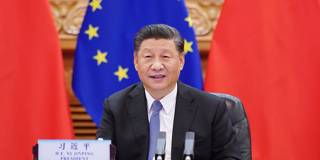For the past 50 years, the West has clung to the hope that modernization would automatically transform China into a capitalist liberal democracy. For decades, maintaining this illusion was good for the bottom line, but now the implications of China's ascendancy have become disturbingly clear.
BERLIN – The confrontation between China and the West is escalating almost daily. The conflict is about technology, trade, global market share, and supply chains, but also about fundamental values. Underpinning this economic and ideological competition is the goal of global predominance in the twenty-first century.
But why is the current escalation happening now? It is not as though the West suddenly had some epiphany about the implications of China’s rise. The fact that China is a Leninist one-party dictatorship is not news, and it did not stop Western countries – led by the United States – from steadily deepening their trade and economic ties with China since the 1970s.
Likewise, China’s leaders have long dismissed outside criticism of their human-rights record and oppression of minorities. Rampant industrial espionage and theft of Western technology and intellectual property are other well-known problems that the West has more or less tolerated for decades in exchange for access to China’s vast market and low-cost labor. Western governments and investors remained sanguine even after the 1989 Tiananmen Square massacre in Beijing. No sooner had the dust settled than Western businesses poured into the country like never before.

BERLIN – The confrontation between China and the West is escalating almost daily. The conflict is about technology, trade, global market share, and supply chains, but also about fundamental values. Underpinning this economic and ideological competition is the goal of global predominance in the twenty-first century.
But why is the current escalation happening now? It is not as though the West suddenly had some epiphany about the implications of China’s rise. The fact that China is a Leninist one-party dictatorship is not news, and it did not stop Western countries – led by the United States – from steadily deepening their trade and economic ties with China since the 1970s.
Likewise, China’s leaders have long dismissed outside criticism of their human-rights record and oppression of minorities. Rampant industrial espionage and theft of Western technology and intellectual property are other well-known problems that the West has more or less tolerated for decades in exchange for access to China’s vast market and low-cost labor. Western governments and investors remained sanguine even after the 1989 Tiananmen Square massacre in Beijing. No sooner had the dust settled than Western businesses poured into the country like never before.